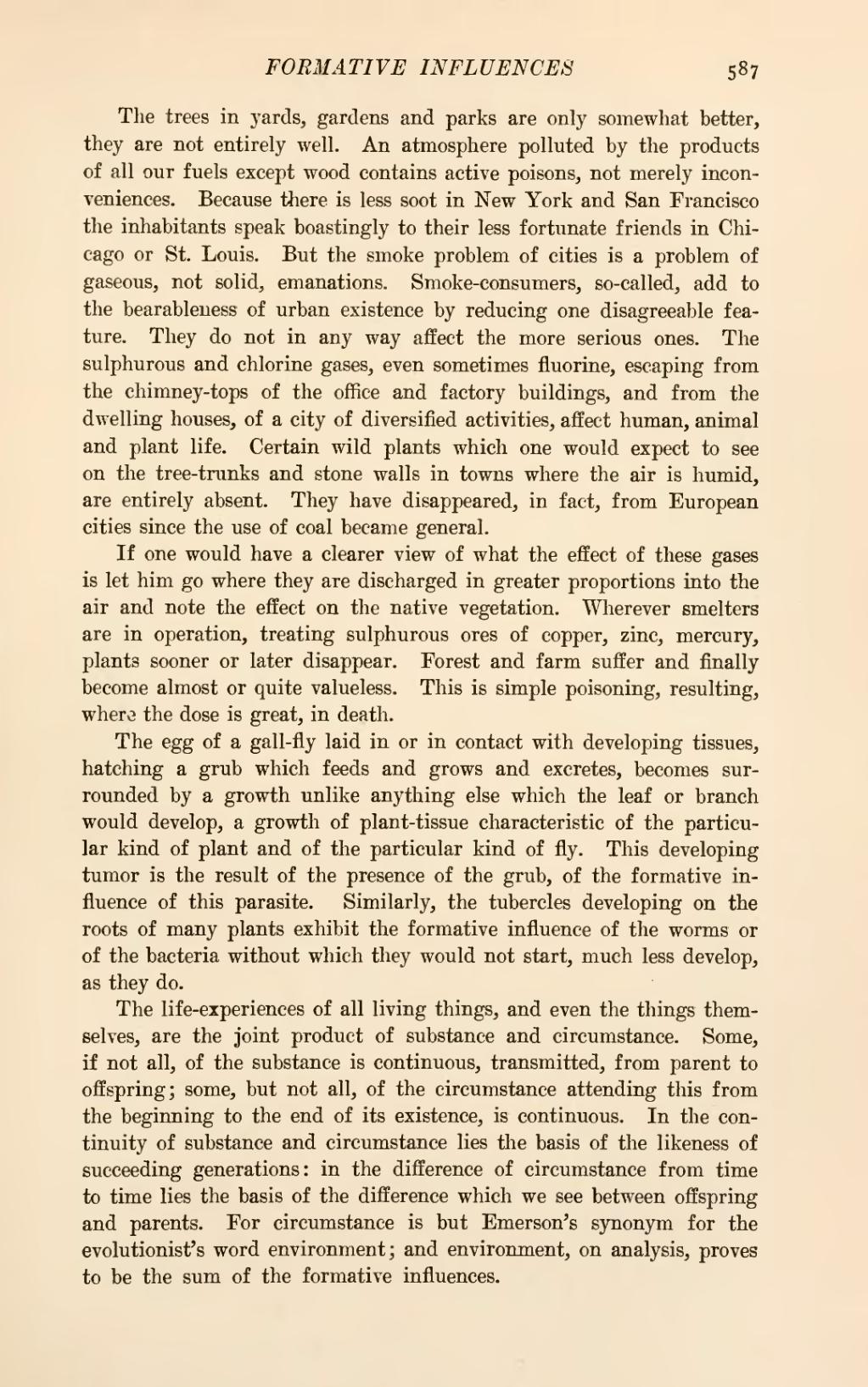The trees in yards, gardens and parks are only somewhat better, they are not entirely well. An atmosphere polluted by the products of all our fuels except wood contains active poisons, not merely inconveniences. Because there is less soot in New York and San Francisco the inhabitants speak boastingly to their less fortunate friends in Chicago or St. Louis. But the smoke problem of cities is a problem of gaseous, not solid, emanations. Smoke-consumers, so-called, add to the bearableness of urban existence by reducing one disagreeable feature. They do not in any way affect the more serious ones. The sulphurous and chlorine gases, even sometimes fluorine, escaping from the chimney-tops of the office and factory buildings, and from the dwelling houses, of a city of diversified activities, affect human, animal and plant life. Certain wild plants which one would expect to see on the tree-trunks and stone walls in towns where the air is humid, are entirely absent. They have disappeared, in fact, from European cities since the use of coal became general.
If one would have a clearer view of what the effect of these gases is let him go where they are discharged in greater proportions into the air and note the effect on the native vegetation. Wherever smelters are in operation, treating sulphurous ores of copper, zinc, mercury, plants sooner or later disappear. Forest and farm suffer and finally become almost or quite valueless. This is simple poisoning, resulting, where the dose is great, in death.
The egg of a gall-fly laid in or in contact with developing tissues, hatching a grub which feeds and grows and excretes, becomes surrounded by a growth unlike anything else which the leaf or branch would develop, a growth of plant-tissue characteristic of the particular kind of plant and of the particular kind of fly. This developing tumor is the result of the presence of the grub, of the formative influence of this parasite. Similarly, the tubercles developing on the roots of many plants exhibit the formative influence of the worms or of the bacteria without which they would not start, much less develop, as they do.
The life-experiences of all living things, and even the things themselves, are the joint product of substance and circumstance. Some, if not all, of the substance is continuous, transmitted, from parent to offspring; some, but not all, of the circumstance attending this from the beginning to the end of its existence, is continuous. In the continuity of substance and circumstance lies the basis of the likeness of succeeding generations: in the difference of circumstance from time to time lies the basis of the difference which we see between offspring and parents. For circumstance is but Emerson's synonym for the evolutionist's word environment; and environment, on analysis, proves to be the sum of the formative influences.
